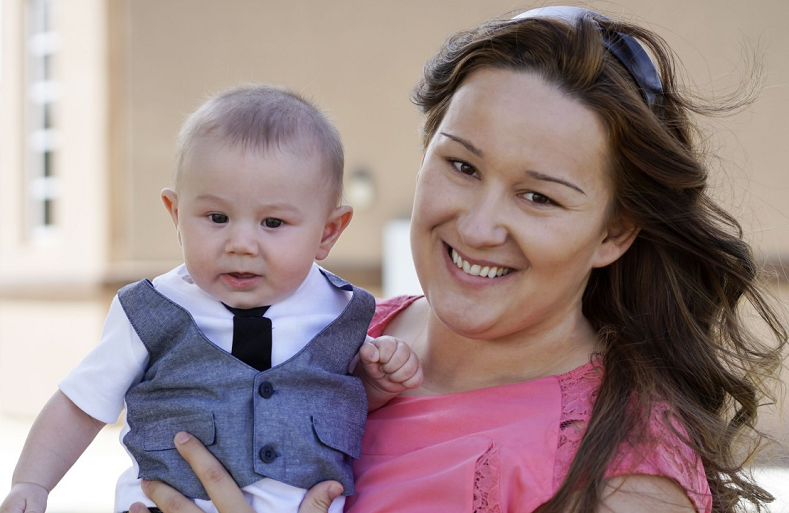In 1973, the Supreme Court short-circuited the democratic process, overruling state efforts to protect the unborn by declaring a constitutional right to abortion in Roe v. Wade. Ever since, the issue has remained a flashpoint in our national discourse.
Earlier this month, the Court heard oral arguments in Dobbs v. Jackson, a case out of Mississippi that could lead to the curtailing or overthrow of the Roe regime.
For all the passion abortion enflames on both sides of the aisle, however, a decision overruling Roe might have a surprisingly small impact on day-to-day life. Progressive states like New York and California have already codified the right to an abortion at the state level. New York attorney general Letitia James has proposed devoting state funds to subsidizing abortion tourism to the Empire State. Red states that will enact stronger protections of the unborn following a favorable court decision already tend to have a smaller number of abortion clinics, and a relatively low rate of abortions.
The greatest tensions will arise from blue cities within red states—college towns, state capitals and other metropolitan areas surrounded by rural voters. Progressive activists in places like Austin, Baton Rouge, Columbus or St. Louis will likely be outnumbered. Faced with an unfamiliar legal landscape, many will undoubtedly launch loud protests and spearhead a counter-productive resistance.
Follow LifeNews on the Parler social media network for the latest pro-life news!
But if they can work across the aisle, progressives may find conservative lawmakers newly willing to pass laws that materially support pregnant women and their children. Pro-lifers know that a world in which abortion is less available will require both government and civil society groups to do more to support expecting moms and the babies they carry. This should be an opportunity for left-leaning advocates to engage about what a more robust social safety net should look like for moms.
Conservative and progressive lawmakers and activists will always disagree about whether abortion should be legal. They can find common ground, however, in making abortion less seemingly necessary for moms in economic distress.
A perfect example of this potential for cooperation came from the state of Texas earlier this year. State representative Toni Rose, a Democrat from Dallas, helped lead a successful bipartisan effort to extend Texas’ Medicaid maternity benefits—which cover nearly half of the pregnant women in the state—for six months after birth. This common-sense provision aimed at improving children’s outcomes and reducing maternal mortality attracted support from lawmakers across the aisle. States that want to pursue similar goals could take advantage of a little-noticed provision in the Biden administration’s American Rescue Plan, which included funding for states that opt to provide pregnancy-related Medicaid coverage for up to one year after birth.
Other low-hanging fruit could include expanding support for the Women, Infants, and Children (WIC) supplemental nutrition program, which provides assistance to mothers with young children. In a typical, pre-pandemic year, about 12 million women and their young children met eligibility criteria for assistance through this program, while just over half (6.7 million) actually received benefits. States could take the lead in making those benefits more accessible and user-friendly, to help more women with young mouths to feed. A Michigan pilot program, for example, developed a mobile app to help young moms make eligibility appointments and easily determine which foods were WIC-eligible. Catholic Charities of the Archdiocese of Chicago operates entire stores for WIC participants, offering exclusively WIC-eligible groceries, child care services, paternity establishment, tax assistance and more. These efforts, and others like them, could be the first step in providing moms with needed support not just during pregnancy, but during the first years of their child’s life and beyond.
Of course, if the Court rules to uphold Roe (and Planed Parenthood v. Casey, the 1992 decision that altered and affirmed it), there will be protests of a different sort—conservative pro-life activists will have made all sorts of moral and political compromises to attain a presumed Supreme Court majority, only to have their best chance in a generation fall short. The recriminations will fly fast and heavy, and the conservative movement may be in too much disarray to put muscle behind expanding safety-net supports for expectant mothers. But if the Court preserves the manifestly cruel Roe regime, programs aimed at curbing abortion’s perceived necessity will become all the more important.
Up till now, lawmakers on both sides have found reasons to avoid common-ground approaches. In his book Reclaiming Hope, former White House staffer Michael Wear relates how the Obama administration’s proposed initiative to curb abortion rates took on expected fire from conservatives for not going far enough. But the administration was also attacked by its progressive flank for even suggesting abortions needed to be reduced at all. In a post-Dobbs world, the political calculus may change drastically for each side.
The injustice of Roe has inflamed America’s politics for half a century, and an optimist might hope that an injection of federalism into abortion politics could help us reach a more stable equilibrium. Yes, ending Roe would usher in a new phase of abortion policy, where unprecedented diversity in state policies could lead to unbearable tensions. But it could also force a productive engagement on what a policy agenda that puts pregnant mothers and children first could look like.
LifeNews Note: Patrick T. Brown (@PTBwrites) is a fellow at the Ethics and Public Policy Center.








